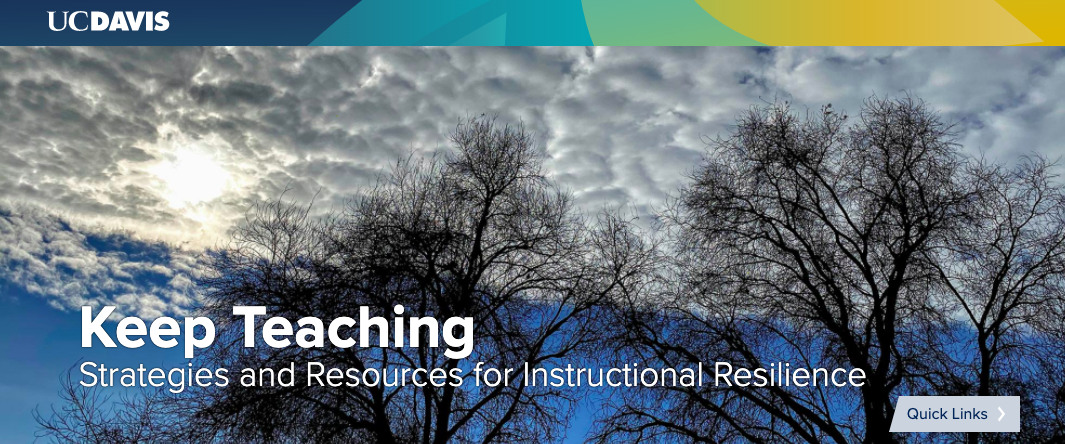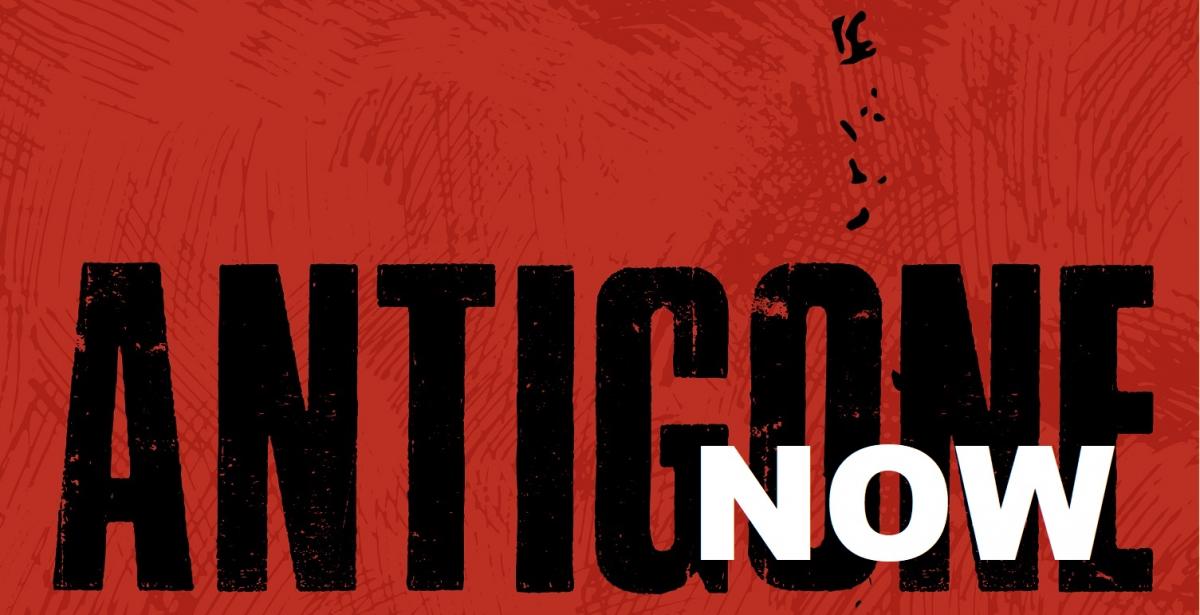
Humanities and Pedagogy During COVID-19
At the DHI we recognize that we are living through a historically difficult moment for our university community and for the world. All UC Davis classes have moved online for spring quarter, but many in our community are instructors who may have never taught online before. We know that you may be scrambling to do your best to facilitate learning and deliver content in new ways while also supporting students, caring for your own well-being, and possibly caring for others in your lives as well. We have put together this list of resources, tips, and interesting ideas, including innovative approaches to teaching the humanities remotely, which we hope will offer some comfort and inspiration during this overwhelming time.
UCD resources for humanities instructors
The most comprehensive tool available to UCD instructors is the Keep Teaching website, an impressive collaboration between the Center for Educational Effectiveness and Academic Technology Services. Start with their page on the difference between Remote Instruction and Online Learning, which includes some good advice on emergency remote writing instruction from the UWP’s Kory Ching.

The UCD Library’s Coronavirus page includes a section on teaching, which explains how to set up an online reading list in Canvas that links directly to the library’s digital holdings. They also offer instructional support, can meet with classes via Zoom to teach research skills and support research assignments, and are taking requests for electronic books to be added to the system to increase access.
For collaborative work in the classroom, Zoom has a guide to video breakout rooms. It’s important, too, to always be attentive to Zoom security. Canvas also offers a helpful guide to creating group discussions in courses.
Teaching Assistants may appreciate this list of “Ten Tips for Graduate Students Teaching Online” from EdTech Commons at UC Davis.
Approaches to teaching the humanities remotely, at UC Davis and beyond
Florida State University’s Vanessa Dennen, whose teaching and research focuses on “how people use emerging technologies to interact and engage in a variety of knowledge activities,” is writing an ongoing series of blog posts about teaching and learning during COVID-19. The gist of Dennen’s approach: People First. Content Second. Technology Third.
Feminist pedagogy discourse highlights the role of care during COVID-19. The UC Davis Feminist Research Institute sent out FemTechNet’s Feminist Pedagogy in a Time of Coronavirus Pandemic in their recent newsletter. The document lays out what some of the FemTechNet network has learned working internationally on technology and feminism over an eight-year history and highlights the importance of facilitating asynchronous learning, DIY connections, and anti-racist educational spaces, to name just a few. The crowdsourced cross-disciplinary Coronavirus Syllabus collected by Alondra Nelson is full of materials for teaching this moment, including not only articles, books, literature, and archives, but also podcasts, visual arts, music, and more.

We’re seeing creative responses to teaching during COVID-19 on campus. Margaret Laurena Kemp, co-director and associate professor of Theatre and Dance at UCD, has opted to continue with the May production of Antigone NOW, which she had cast before COVID-19 began impacting campus so drastically. Now, however, the production will be performed collectively in isolation with smartphones & iPads “with its all-female cast and creative team in seclusion.”
And for parents trying to support their kids’ learning at home, educators at the UCD-based California History-Social Science Project have been posting lots of useful resources on their website, including a page on teaching about pandemics and the popular blog post “Keep Calm and Parent On,” which reminds parents that “you don’t have to recreate your kids’ classroom in your kitchen.”
Conversation around how to think about teaching during this time
These challenging times remind us of the necessity of teaching online with care. Rebecca Barrett-Fox’s article “Please do a bad job of putting your courses online" details some of the “factors that mean that your students are facing more important battles today than your class–if they are even able to access it.” Barrett-Fox speaks to the gut-wrenching challenges of this historical moment, including but not limited to illness, care responsibilities, and inequitably-distributed resources.
In this vein, Jenny Davidson argues, “Forget distance learning. Just give every student an A.” She contends that “[w]e are not prioritizing the right values when we focus so narrowly on academic matters while our students are experiencing a flood of other practical and emotional demands on finite resources” and insists on grade leniency as a form of care.
Imagining America has a long list of community support and social justice resources to supplement educators and students beyond the classroom in their latest newsletter. Among them are Anne Basting’s blog post “Let Lockdowns Spur Creative Solutions in Care,” a zine called Safety Practices for Mutual Aid Food & Supply Distribution, and the Black Girl Magik COVID-19 Global Resource Guide.
Future steps
In upcoming newsletters, we will share further curated resource articles. Topics include public health and the humanities; emergency funding during COVID-19 for students, educators, and cultural workers; and more.
Thank you to UC Davis Ecology PhD candidate Kristin Dobbin for suggesting resources via the UCD Political Ecology Lab!
